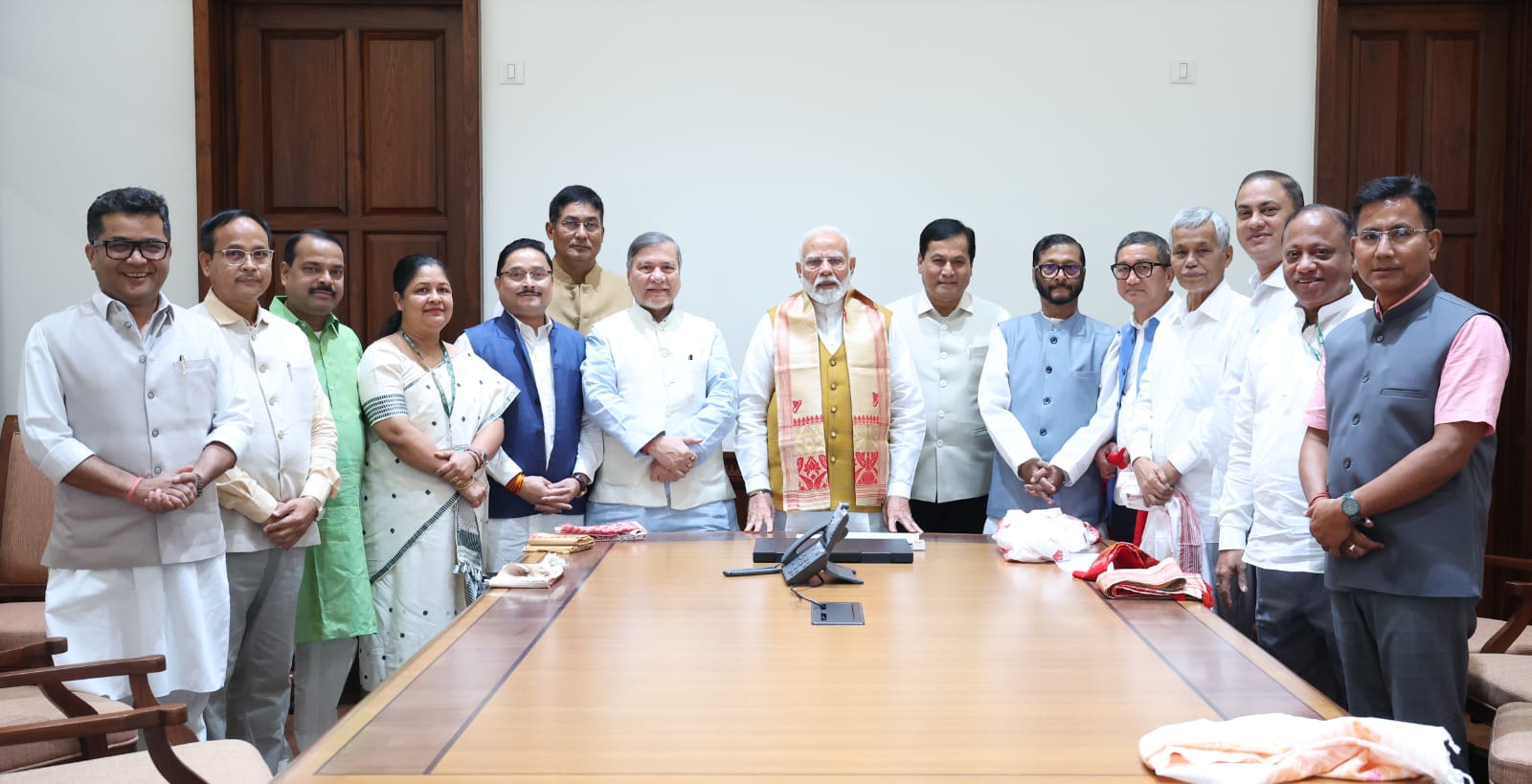On August 6, 2024, Union Minister of Ports, Shipping and Waterways, Sarbananda Sonowal, along with other National Democratic Alliance (NDA) Members of Parliament (MPs) from Assam, met with Prime Minister Narendra Modi in New Delhi to discuss the transformative potential of Northeast India. Sonowal articulated a vision where the Northeast emerges as a pivotal hub for production and business in Southeast Asia, with Guwahati positioned as the lynchpin of this economic transformation. This meeting underscored the region’s ongoing development and the government’s commitment to harnessing its full potential.
Sarbananda Sonowal expressed his optimism regarding the Northeast’s capabilities, stating, “We are extremely inspired by the leadership of Prime Minister Shri Narendra Modi ji that has explored many possibilities of the rich region of the Northeast to become the growth engine of India’s next economic growth.” His remarks reflect a broader sentiment among regional leaders who believe that the Northeast can significantly contribute to India’s economic landscape.
A key aspect of this vision is the ongoing infrastructure development in the region. Sonowal highlighted the construction of five new bridges over the Brahmaputra River, a significant achievement considering the historical challenges faced in developing such critical infrastructure. He noted, “There was a time when we had to fight for one bridge over the Brahmaputra, and today, under Modi ji, five new bridges are being constructed.” This development is expected to enhance connectivity, facilitate trade, and improve the overall quality of life for residents.
The strategic investments in infrastructure are not limited to bridges. The government has also prioritized roadways, railways, and air connectivity, which are crucial for integrating the Northeast with the rest of India and neighboring Southeast Asian countries. The recently approved Guwahati Ring Road is a testament to this commitment, aimed at easing traffic congestion and promoting economic activities in and around the city.
Guwahati is being positioned as a central hub for business and trade in the region. Its geographical location makes it an ideal gateway to Southeast Asia, facilitating cross-border trade and investment. The city’s growing infrastructure and connectivity are attracting businesses looking to tap into the vast markets of the region.
Sonowal stated, “Northeast has full potential to become a hub of production and business of Southeast Asia, and Guwahati is going to be the lynchpin of this economic possibility, unlocking immense potential of the Northeast.” This vision aligns with the government’s broader strategy of promoting the Act East Policy, which aims to strengthen India’s ties with Southeast Asian nations.
The government has initiated several key projects aimed at bolstering the Northeast’s economy. Notable among these is the establishment of the first semiconductor plant in the region, which is expected to create jobs and foster technological innovation. This move is crucial as India seeks to become self-reliant in semiconductor production, a critical component for various industries, including electronics and automotive.
Additionally, the UNESCO Heritage Site listing of the historic Charaideo Moidams has opened new avenues for tourism and cultural preservation. This recognition not only enhances the region’s cultural significance but also attracts investment in tourism infrastructure, further contributing to the local economy.
During the meeting, the MPs expressed their gratitude to Prime Minister Modi for the transformational changes witnessed in the Northeast over the past decade. They acknowledged the government’s efforts in fostering peace, progress, and prosperity in the region. The MPs thanked the Prime Minister for the flood assistance announced in this year’s budget, which is particularly important given the recurrent flooding issues faced by Assam and other northeastern states.
The central government’s proactive approach in addressing the challenges faced by the Northeast has been pivotal. By prioritizing development projects and ensuring the allocation of resources, the government has laid the groundwork for sustainable growth. The focus on infrastructure, connectivity, and economic diversification is expected to yield significant dividends in the long run.
Despite the promising developments, the Northeast still faces several challenges that need to be addressed to realize its full potential. Issues such as political instability, ethnic tensions, and infrastructural bottlenecks continue to pose hurdles to growth. It is essential for both the central and state governments to work collaboratively to mitigate these challenges.
Moreover, local participation in the development process is crucial. Empowering local communities and businesses to take part in the economic transformation will ensure that the benefits of growth are equitably distributed. Initiatives aimed at skill development, entrepreneurship, and local governance can play a significant role in fostering a conducive environment for sustainable growth.
As the government continues to invest in the Northeast, it is imperative to address the existing challenges while fostering local participation in the development process. The vision articulated by Sonowal and supported by the NDA MPs reflects a growing consensus that the Northeast can indeed become a vital engine of India’s economic growth, contributing significantly to the nation’s aspirations on the global stage. The ongoing efforts to harness the region’s potential will not only benefit the local populace but also enhance India’s standing as a key player in the Southeast Asian economic landscape.

